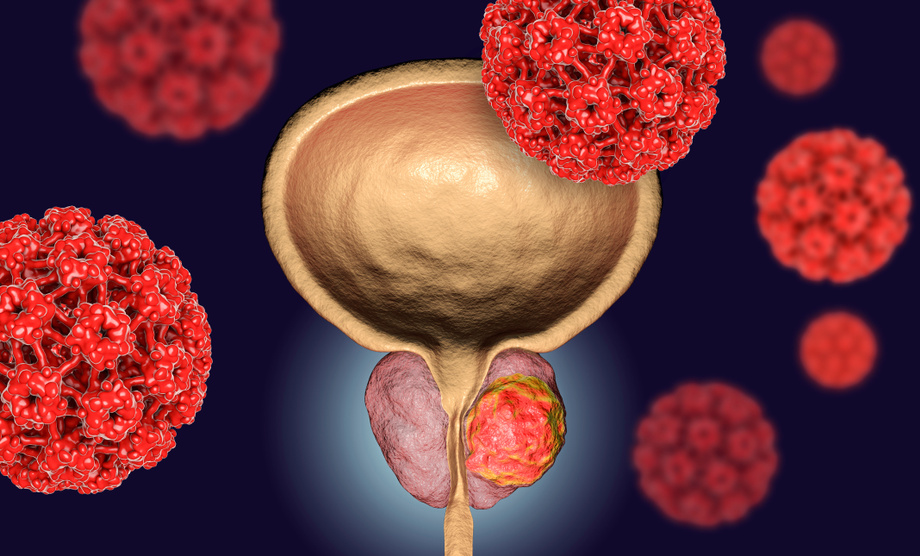Prostate cancer is one of the leading causes of cancer death, with 1 in 10 men diagnosed in their lifetime and 1 in 41 dying from the disease. Globally, there are 1.3 million new cases of prostate cancer every year and 360,000 associated deaths. Up to 50% of patients will eventually become refractory to androgen deprivation therapy and progress to castrate-resistant prostate cancer (CRPC) and its metastatic form (mCRPC), eventually succumbing to the disease or dying from complications. While recent advances in treating CRPC and mCRPC have provided improvements in patient outcomes, none provide long-term remission of the disease. Contemporary immuno-oncology is shifting towards leveraging immunostimulants to reap the benefits of innate and adaptive immune responses.
Researchers at Stony Brook University have developed a therapeutic platform that combines a cytotoxin, an immunostimulant, a prostate-specific membrane antigen targeting motif, and a cleavable linker illicit a long-term adaptive immune response. Once at the tumor site, the link is cleaved, separating the components. Activation and localization of immune cells combines with apoptotic cancer cell debris from the cytotoxic payload to form tumor antigen loaded antigen-presenting cells. These cells generate tumor-specific cytotoxic T-cells that will kill cancer cells expressing the tumor-associated antigens. The cytotoxic payload will also kill some local PSMA(-) tumor cells, which will generate new T-cells that target PSMA(-) cells, along with the PSMA(+) targeting T-cells, preventing a major resistance pathway for prostate cancer. Overall, this will rescue non-responders and provide enhanced clinical outcomes.

Source: Kadmy, https://stock.adobe.com/uk/400249569, stock.adobe.com
Potential for providing long term remission and immunity
Allows for synergy between cytotoxin and immunostimulant treatments
Utilizes innate and adaptive immune responses
Castrate-resistant prostate cancer
Metastatic castrate-resistant prostate cancer
PSA-staining extraprostatic tumors
Provisional patent, Know-how based
early/medium stage
Available for Licensing
Development partner - Commercial partner - Licensing
Additional Information: